
Mbale: The Gem of Eastern Uganda
Nestled at the foothills of Mount Elgon, Mbale is a vibrant city in Eastern Uganda known for its stunning natural beauty and rich cultural heritage. The city offers a unique blend of picturesque landscapes, warm hospitality, and a variety of attractions that appeal to both adventure seekers and those looking to immerse themselves in local traditions. One of the main draws of Mbale is Mount Elgon National Park, home to the extinct volcano Mount Elgon. The park offers an array of activities including hiking, bird watching, and exploring ancient caves. The Sipi Falls, a series of three stunning waterfalls, are also located nearby and provide breathtaking views as well as opportunities for abseiling and rock climbing. Mbale's vibrant markets and bustling streets offer a glimpse into the daily life of its residents. The city is known for its colorful markets where you can find everything from fresh produce to handmade crafts. The local cuisine is a delight, with dishes like matoke (steamed bananas) and luwombo (stewed meats cooked in banana leaves) that are a must-try. Cultural enthusiasts will appreciate a visit to the Imbalu circumcision ceremonies, a traditional rite of passage for young men in the Bagisu tribe. These ceremonies are held every even year and are a significant cultural event that draws visitors from all over the world. The city's museums and cultural centers also provide insightful information about the history and traditions of the local communities.
Local tips in Mbale
- Visit the Sipi Falls early in the morning for the best views and fewer crowds.
- Hire a local guide when hiking Mount Elgon for a safer and more informative experience.
- Try to time your visit during the Imbalu ceremonies for a unique cultural experience.
- Shop at the local markets for fresh produce and handmade crafts at reasonable prices.
- Carry some local currency (Ugandan Shillings) as not all places accept credit cards.
Mbale: The Gem of Eastern Uganda
Nestled at the foothills of Mount Elgon, Mbale is a vibrant city in Eastern Uganda known for its stunning natural beauty and rich cultural heritage. The city offers a unique blend of picturesque landscapes, warm hospitality, and a variety of attractions that appeal to both adventure seekers and those looking to immerse themselves in local traditions. One of the main draws of Mbale is Mount Elgon National Park, home to the extinct volcano Mount Elgon. The park offers an array of activities including hiking, bird watching, and exploring ancient caves. The Sipi Falls, a series of three stunning waterfalls, are also located nearby and provide breathtaking views as well as opportunities for abseiling and rock climbing. Mbale's vibrant markets and bustling streets offer a glimpse into the daily life of its residents. The city is known for its colorful markets where you can find everything from fresh produce to handmade crafts. The local cuisine is a delight, with dishes like matoke (steamed bananas) and luwombo (stewed meats cooked in banana leaves) that are a must-try. Cultural enthusiasts will appreciate a visit to the Imbalu circumcision ceremonies, a traditional rite of passage for young men in the Bagisu tribe. These ceremonies are held every even year and are a significant cultural event that draws visitors from all over the world. The city's museums and cultural centers also provide insightful information about the history and traditions of the local communities.
When is the best time to go to Mbale?
Iconic landmarks you can’t miss
Mbale Resort Hotel
Discover the serene beauty of Mbale Resort Hotel, where luxury meets nature in the heart of Uganda, perfect for relaxation and adventure alike.
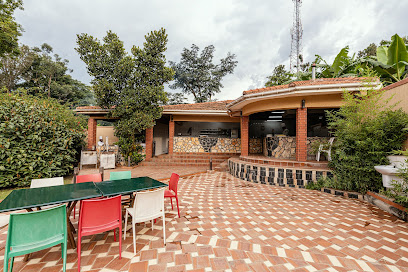
Wash And Wills Hotel
Discover the perfect blend of comfort and local charm at Wash And Wills Hotel in Mbale, Uganda, your gateway to adventure and relaxation.
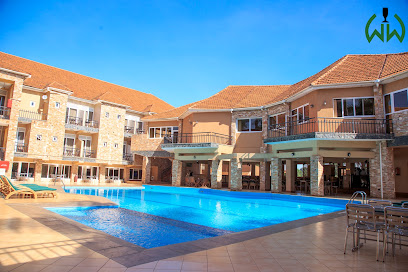
Mt Elgon Hotel
Experience the serene beauty and warm hospitality at Mt Elgon Hotel in Mbale, an ideal retreat for travelers seeking comfort and nature.

Thatch Lounge
Experience the vibrant atmosphere and delicious offerings at Thatch Lounge in Mbale, where culinary delights meet a cozy ambiance.
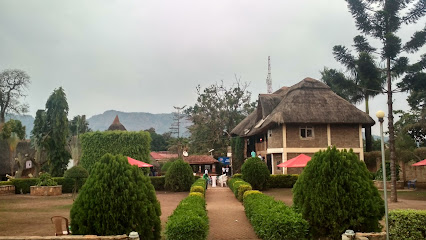
Casa del Turista
Experience the warmth of Ugandan hospitality at Casa del Turista, a charming bed & breakfast in Mbale, perfect for coffee lovers and adventurers.
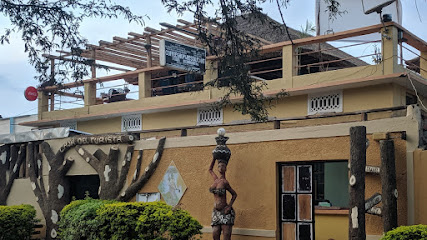
Visitors Inn Guest House
Discover the charm of Mbale at Visitors Inn Guest House, your cozy base for exploring Uganda's scenic beauty and rich culture.

Club el Tanjia
Discover the essence of Mbale at Club el Tanjia, where delicious cuisine meets vibrant entertainment and local culture in a lively atmosphere.
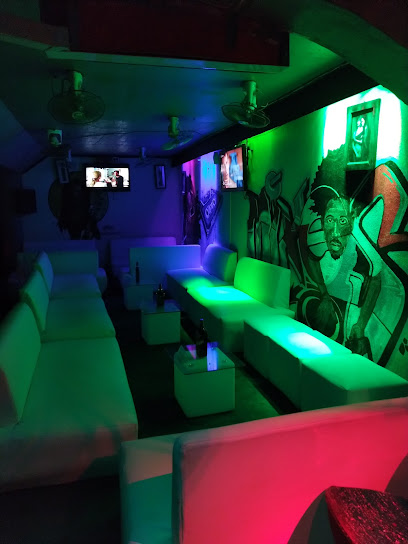
Pretoria Hotel Mbale
Discover comfort and culture at Pretoria Hotel Mbale, your ideal base for exploring the beauty of Uganda's Eastern region.

Bright safaris Uganda limited
Discover the natural beauty and vibrant culture at Bright Safaris Uganda, a premier tourist attraction in Mbale, perfect for nature lovers and adventurers alike.
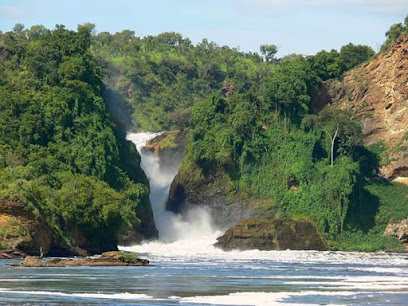
Mbale Travellers Inn
Experience the charm of Mbale Travellers Inn, your cozy escape in the heart of Uganda's breathtaking landscapes and rich cultural heritage.

Mbale Courts View Hotel
Discover the perfect blend of comfort and adventure at Mbale Courts View Hotel, your serene getaway in the heart of Uganda.

Lucia Villas Mbale
Discover the charm of Uganda at Lucia Villas Mbale, a cozy bed and breakfast in the heart of Mbale, perfect for relaxation and cultural exploration.

Kayegi Hotel
Discover comfort and tranquility at Kayegi Hotel in Mbale, your perfect base for exploring Uganda's natural beauty and vibrant culture.

Colobus Restaurant
Explore the delightful flavors of Uganda at Colobus Restaurant in Mbale, where local cuisine meets warm hospitality in a charming atmosphere.
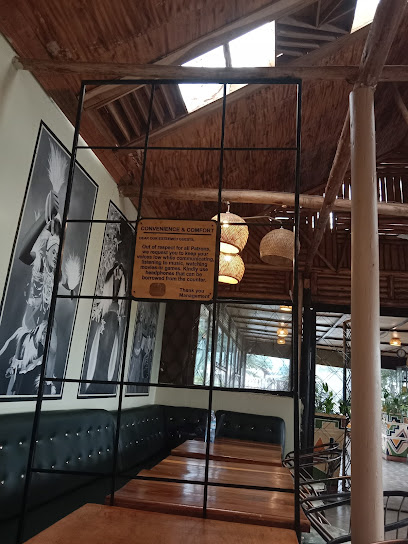
Hilltop View Hotel
Discover breathtaking views and serene accommodations at Hilltop View Hotel, your perfect retreat in Mbale, Uganda.

Unmissable attractions to see
Mbale Clock Tower
Discover the rich history and vibrant atmosphere surrounding the iconic Mbale Clock Tower, a must-see landmark in Uganda's picturesque Mbale city.
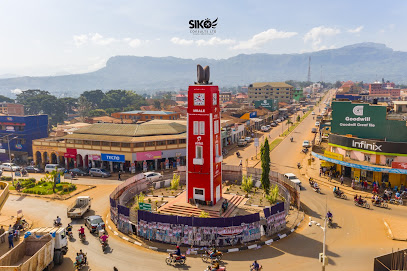
Sipi Falls
Explore Sipi Falls – a stunning series of waterfalls in Chebonet, Uganda, surrounded by lush landscapes and vibrant local culture.
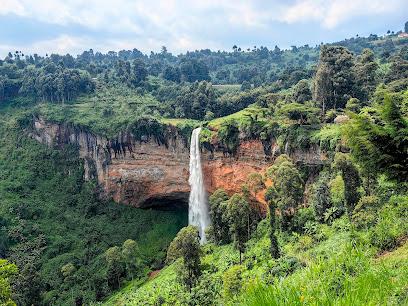
Bright safaris Uganda limited
Explore Uganda's beauty with Bright Safaris: an unparalleled adventure in nature and culture awaits you.
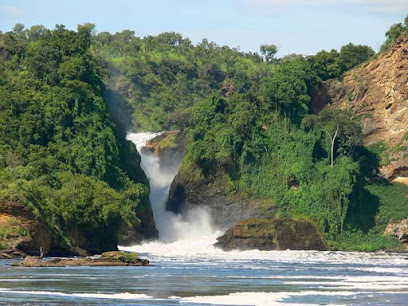
Sisiyi Falls
Experience the breathtaking beauty of Sisiyi Falls in Buligenyi, a natural wonder that promises tranquility and adventure in Uganda's stunning landscape.
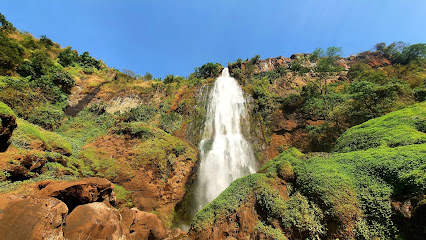
Cwmbale Wildlife Education Centre
Explore Cwmbale Wildlife Education Centre, where nature meets education in a breathtaking wildlife park in Uganda.
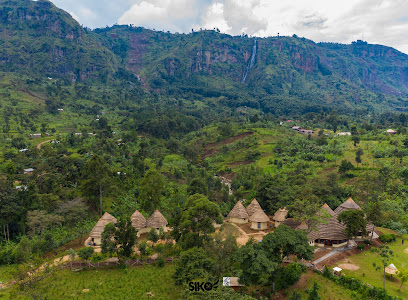
Mt Elgon Culture And History Museum
Explore the captivating culture and history of the Mbale region at the Mt Elgon Culture And History Museum, a must-visit for every traveler.
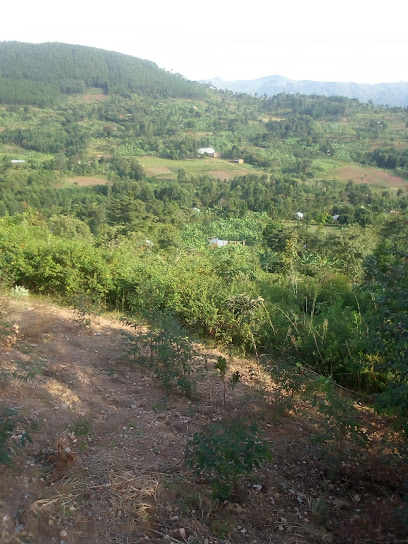
Wanale Ridge
Discover the breathtaking beauty of Wanale Ridge, a premier hiking destination in Uganda with stunning views, waterfalls, and rich biodiversity.
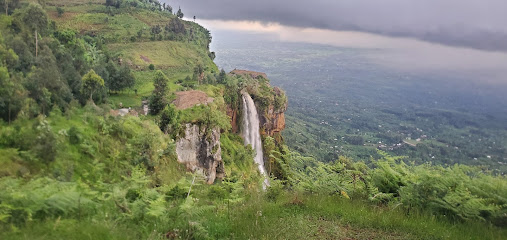
Semei Kakungulu Country Lodge
Experience the tranquility and breathtaking views at Semei Kakungulu Country Lodge, a serene retreat in the heart of Mbale, Uganda.
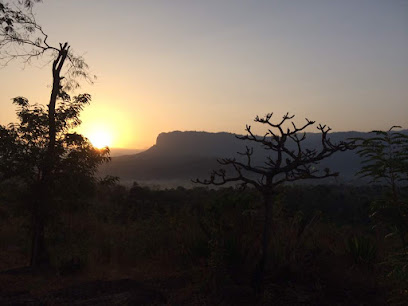
Falling Sky Resort and Tour Hotel
Experience the serenity of Falling Sky Resort in Mbale, Uganda, where natural beauty meets cultural richness for an unforgettable getaway.
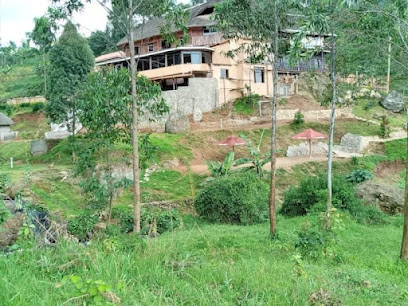
SIPI FALLS EXPEDITION.
Explore Sipi Falls in Uganda - a stunning natural attraction with breathtaking views, adventure trails, and a glimpse into local culture.
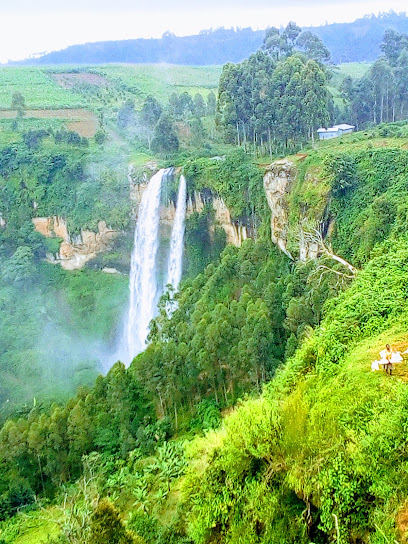
Pioneer Grounds
Explore the serene beauty of Pioneer Grounds in Mbale, where nature meets culture for an unforgettable tourist experience.
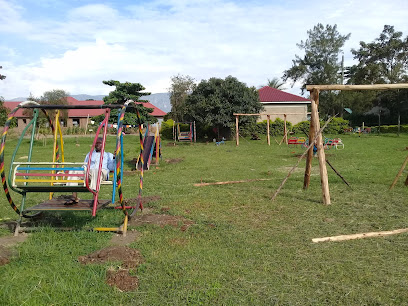
Kyakondo Falls
Experience the breathtaking beauty of Kyakondo Falls, an enchanting natural wonder near Mbale, Uganda, perfect for nature lovers and adventure seekers alike.
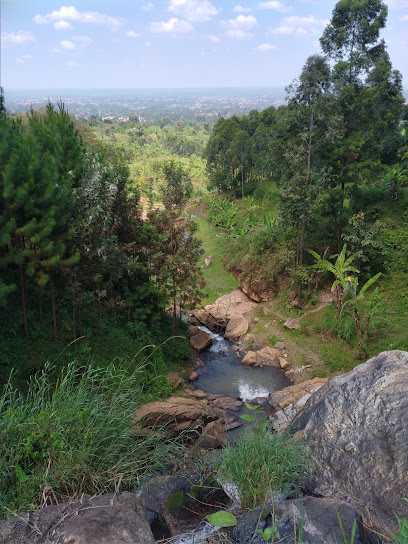
St. Paul's Monument
Discover the rich history and serene beauty of St. Paul's Monument in Mbale, a must-visit cultural attraction in Uganda.

Mbale Overlook
Explore the stunning vistas of Mbale Overlook, a hiking haven in Uganda's breathtaking landscapes, perfect for nature lovers and adventure seekers.
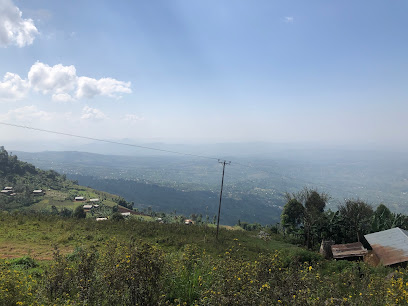
Naz Tours and Travel Uganda
Explore Uganda's breathtaking landscapes and rich culture with Naz Tours and Travel Uganda, your gateway to unforgettable adventures in Mbale.
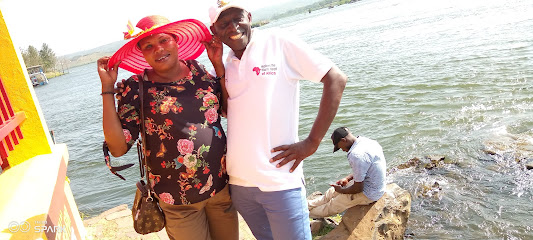
Essential places to dine
Endiro Coffee
Discover Endiro Coffee in Mbale: A delightful blend of rich Ugandan flavors, cozy ambiance, and community spirit awaits you.
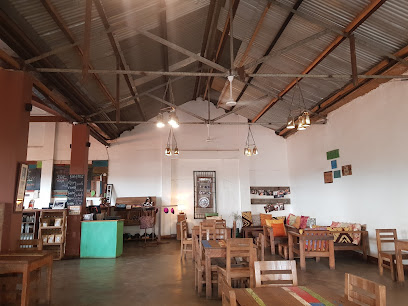
Thatch Lounge
Experience delightful dining at Thatch Lounge in Mbale - where comfort meets culinary creativity in an inviting atmosphere.
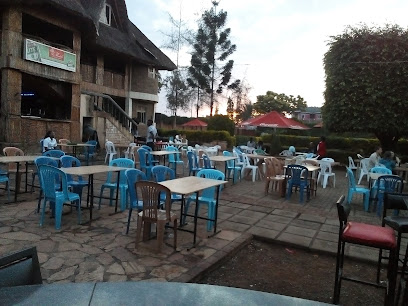
Colobus Restaurant
Experience the rich flavors of Uganda at Colobus Restaurant in Mbale - where culinary tradition meets modern taste.
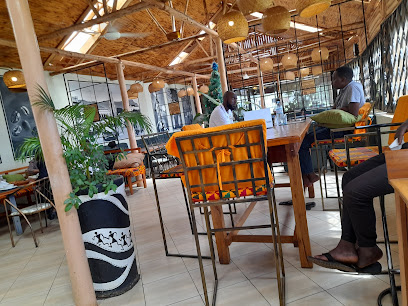
Cosmo Coffee Shop & Restaurant
Discover the flavors of Uganda at Cosmo Coffee Shop & Restaurant in Mbale - where every meal tells a story.
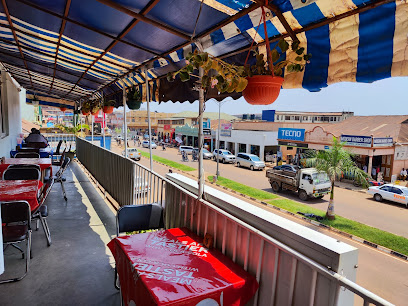
Spicies bar & restaurant
Experience authentic Ugandan flavors and delightful international cuisine at Spicies Bar & Restaurant in Mbale.
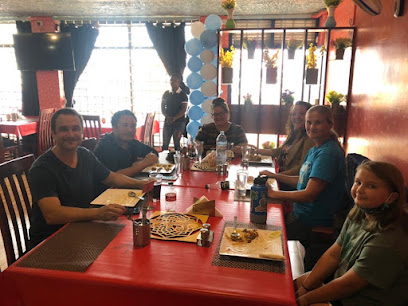
Eastern Restaurant
Discover authentic Ugandan cuisine at Eastern Restaurant in Mbale, where every meal is a celebration of local flavors and hospitality.
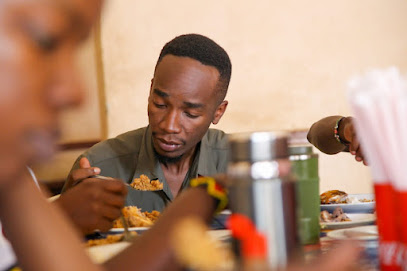
Cosy Point
Experience the culinary delights at Cosy Point in Mbale - where local flavors meet international cuisine.
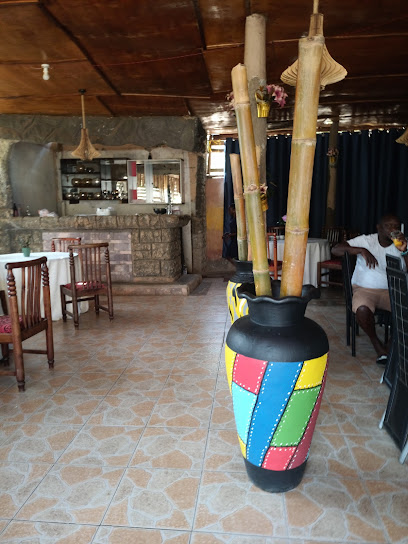
Horizontal Gardens Mbale
Experience the flavors of Uganda at Horizontal Gardens Mbale – where local cuisine meets exceptional dining.
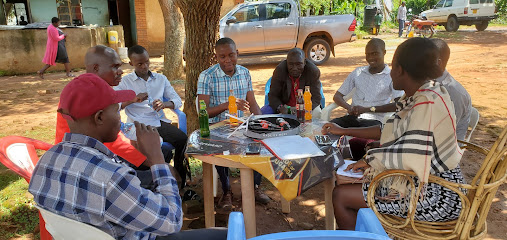
The Rooftop Mbale
Experience delightful dining at The Rooftop Mbale - where breathtaking views meet delicious cuisine in a family-friendly atmosphere.
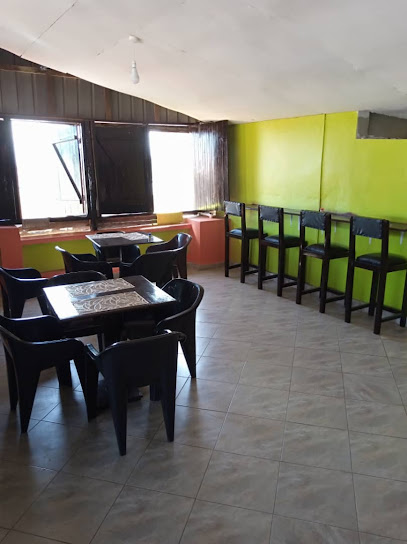
Taufiq East Restaurant
Experience authentic Ugandan cuisine at Taufiq East Restaurant in Mbale, where every meal tells a story of rich culinary traditions.
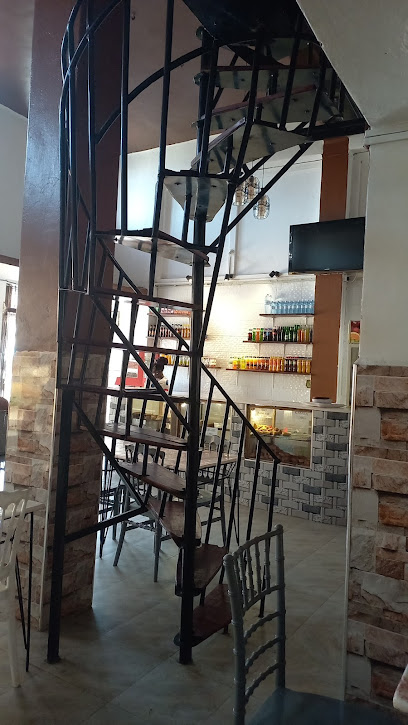
Arabian Restaurant
Experience authentic Middle Eastern cuisine in a family-friendly setting at Arabian Restaurant in Mbale.
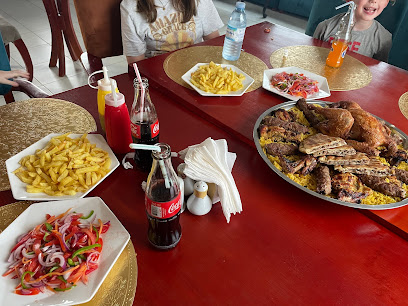
Fish Café and Lounge
Discover the rich flavors of Uganda at Fish Café and Lounge, where fresh seafood meets vibrant local culture in the heart of Mbale.
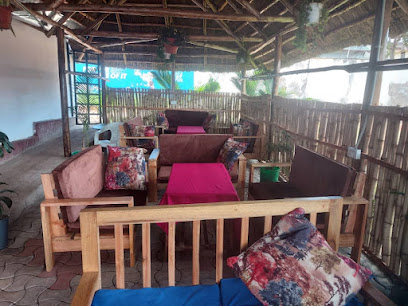
Tower Restaurant
Discover the best of Ugandan cuisine at Tower Restaurant in Mbale - where local flavors meet international flair.
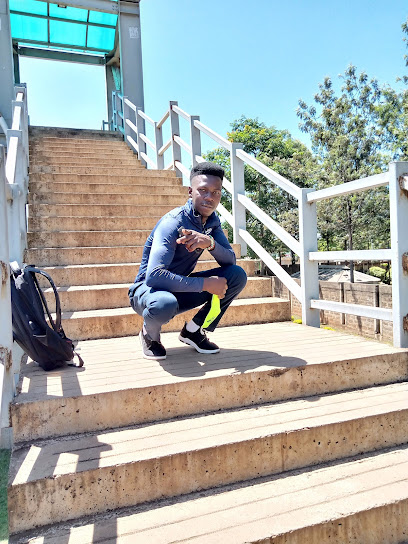
Nyamachoma
Discover the authentic flavors of Uganda at Nyamachoma in Mbale – where every bite tells a story.

Nalongos Restaurant
Discover the authentic flavors of Uganda at Nalongos Restaurant in Mbale – where delicious cuisine meets vibrant culture.

Markets, malls and hidden boutiques
Bam Shopping Center
Explore Bam Shopping Center in Mbale for a vibrant shopping experience with local flair, diverse dining options, and exciting community events.
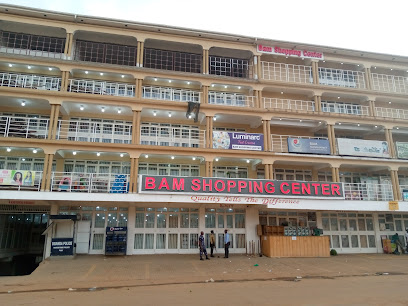
Abrah Shopping Centre Mbale
Discover a shopping paradise at Abrah Shopping Centre Mbale, where modern retail meets local charm, offering a memorable experience for every visitor.
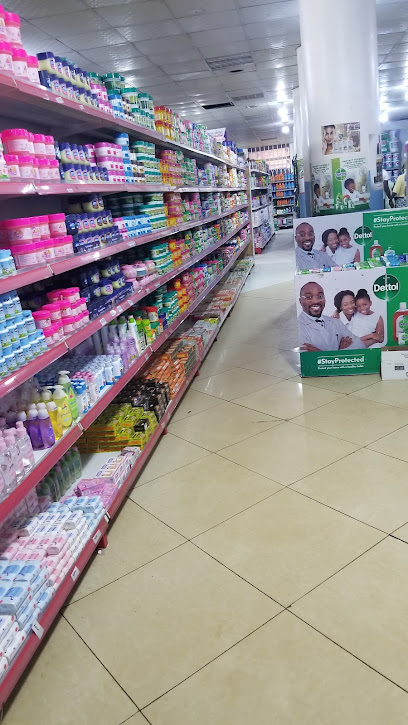
Mbale Shoppers
Discover the vibrant Mbale Shoppers, your gateway to local products and a taste of Ugandan culture in the heart of Mbale.
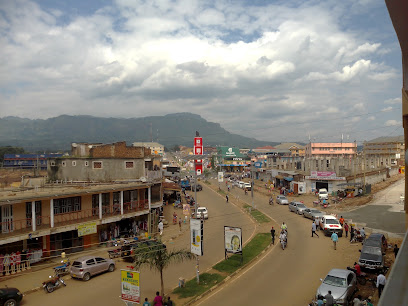
Amber House/Stores
Amber House/Stores in Mbale: A treasure trove of Ugandan crafts and culture, perfect for unique souvenirs and local interactions.

Khushi Impex Super Market
Discover local Ugandan flavors and vibrant shopping at Khushi Impex Super Market in Mbale, a must-visit for every traveler.
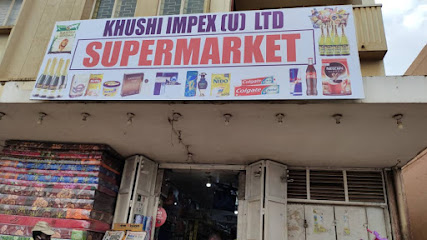
Think Twice Second Hand Clothes.
Explore sustainable fashion at Think Twice Second Hand Clothes in Mbale, where unique styles and eco-conscious shopping come together for the discerning traveler.
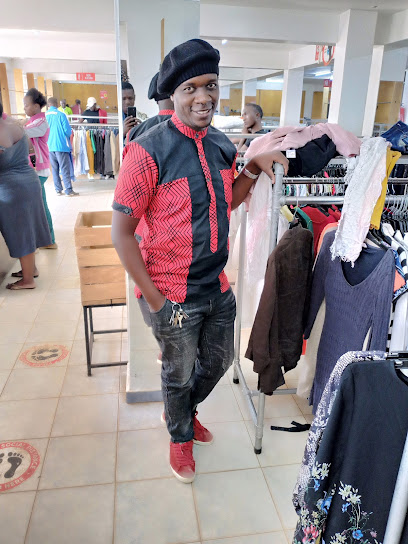
Mbale
Explore the literary treasures of Mbale, a vibrant Ugandan city offering culture, adventure, and stunning landscapes.
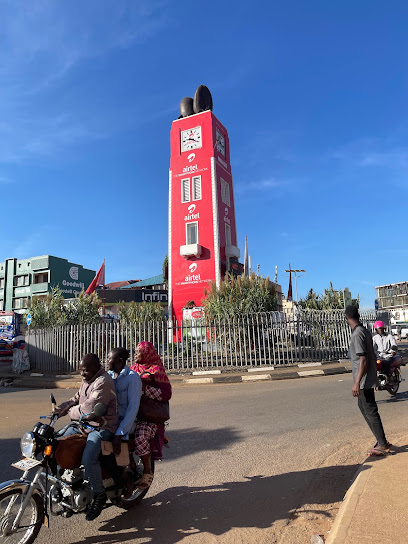
Meddy Furniture Mbale
Discover Meddy Furniture in Mbale - where unique Ugandan craftsmanship meets stylish home decor for every taste and budget.
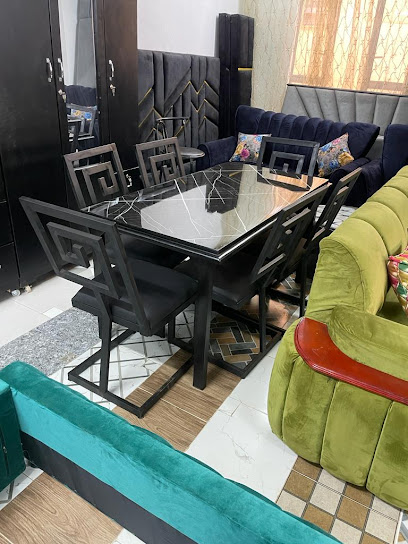
Kim's fashion house
Explore Kim's Fashion House in Mbale for unique local fashion and accessories that celebrate Ugandan style and craftsmanship.
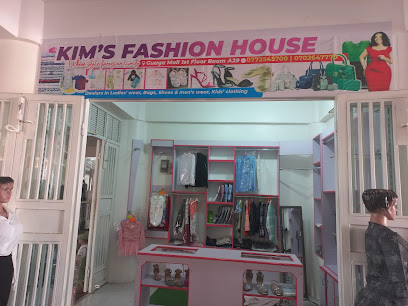
Uganda Baati - Mbale Showroom
Explore Uganda Baati in Mbale for quality home goods that blend functionality with exceptional design, perfect for enhancing your living space.
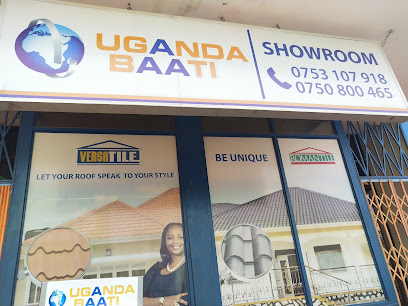
One week fashions
Experience the vibrant local fashion scene at One Week Fashions in Mbale, where trendy clothing meets exceptional service!
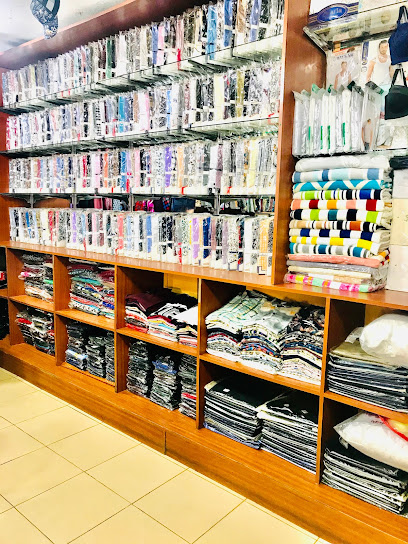
SKY PAN SHOP
Discover authentic Indian flavors at SKY PAN SHOP in Mbale, offering a wide range of spices, groceries, and culinary delights for food enthusiasts.
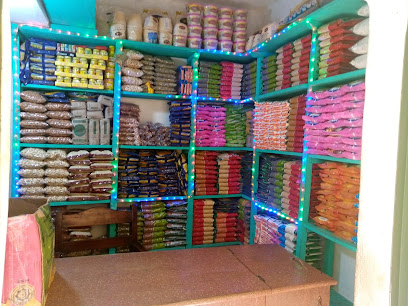
Bugwere Music Store
Explore the vibrant sounds of Uganda at Bugwere Music Store in Mbale, where music lovers find instruments and local tunes steeped in rich cultural history.
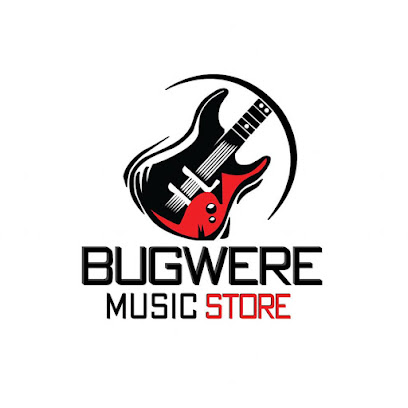
Henceley Enterprise
Explore the vibrant offerings of Henceley Enterprise, your local general store in Mbale City, showcasing Ugandan culture and craftsmanship.

Namunane
Discover authentic Ugandan fashion at Namunane, a vibrant clothing store in Mbale offering unique styles and local craftsmanship.

Essential bars & hidden hideouts
Club el Tanjia
Discover the lively atmosphere of Club el Tanjia in Mbale, where great food, drinks, and live music create unforgettable nights.
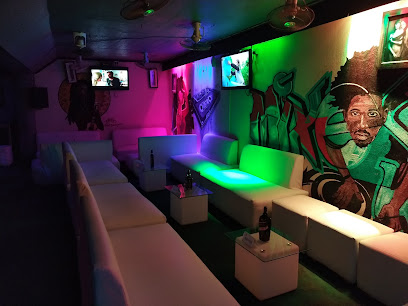
The Oak Bar & Restaurant Mbale
Discover the lively ambiance and delicious menu at The Oak Bar & Restaurant in Mbale, where local flavors meet a vibrant social scene.
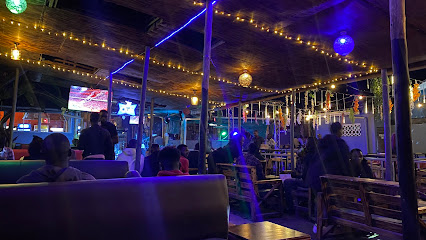
Embassy Lounge
Discover the vibrant Embassy Lounge in Mbale - a perfect blend of local drinks, entertainment, and welcoming ambiance for every traveler.
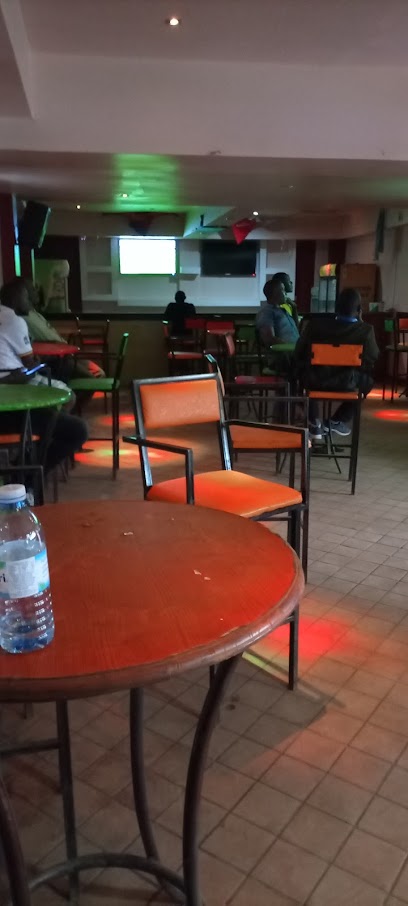
Casablanca Pub
Discover the vibrant nightlife and local culture at Casablanca Pub in Mbale, the perfect spot for relaxation and socializing.
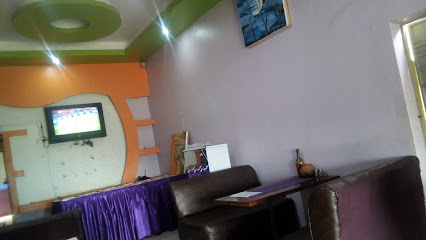
Top Deck Bar & Restaurant
Experience the lively atmosphere and delicious cuisine at Top Deck Bar & Restaurant in Mbale, Uganda, where local flavors meet a vibrant ambiance.
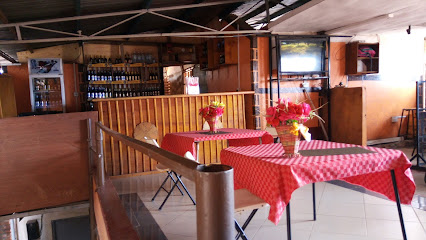
Pavement Pub
Discover the lively ambiance and local flavors at Pavement Pub, a popular spot in Mbale for drinks and entertainment.
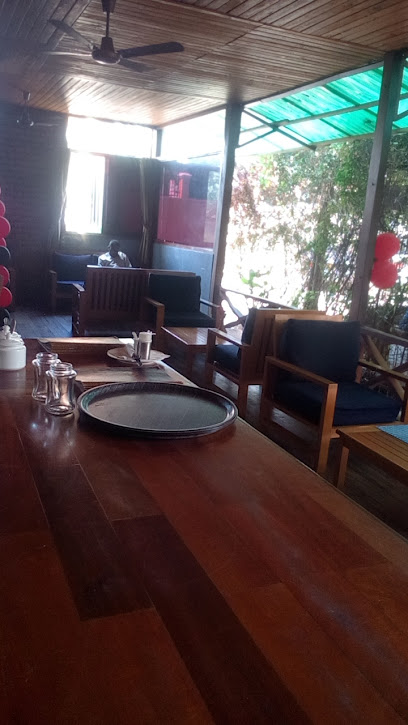
Forester
Discover the vibrant atmosphere at Forester in Mbale, a local bar offering refreshing drinks and a taste of Ugandan nightlife.
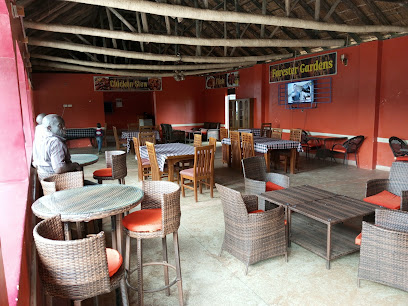
Sipi Fall Bar
Discover the vibrant Sipi Fall Bar in Mbale, offering stunning views, refreshing drinks, and a taste of local culture amidst breathtaking landscapes.

White House Bar
Discover the vibrant nightlife of Mbale at the White House Bar, a local favorite known for its lively atmosphere and diverse drink selection.
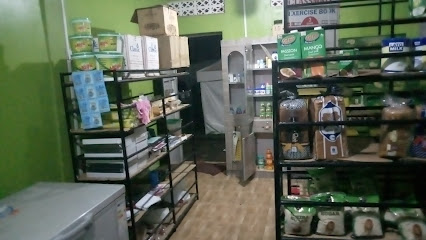
Stop and Relax
Discover Stop and Relax in Mbale, the perfect bar to unwind and experience local flavors amidst a vibrant atmosphere.

Meeting Point Pub
Immerse yourself in the local culture at Meeting Point Pub, a cozy gathering place for drinks and conversation in the heart of Mbale.

Lux Bar Mbale
Discover the vibrant nightlife at Lux Bar Mbale, where refreshing drinks and local culture come together for an unforgettable experience.

Yello Pub
Experience vibrant nightlife and refreshing drinks at Yello Pub in Mbale, a must-visit bar for tourists exploring Uganda.

Eastenders bar and restaurant
Discover the lively Eastenders Bar and Restaurant in Mbale, where local culture meets vibrant nightlife and delightful drinks.
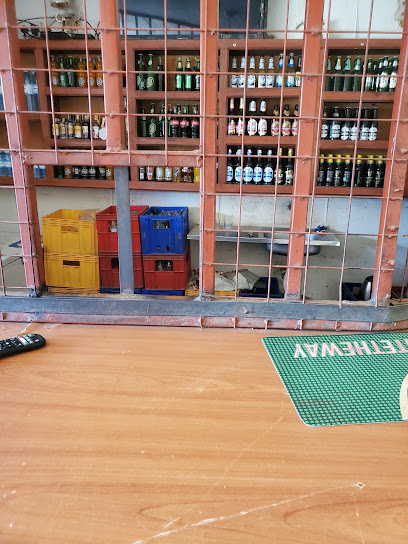
Local Phrases
-
- HelloWabula
[wah-boo-lah] - GoodbyeBye bye
[bye bye] - YesYee
[yay] - NoNedda
[nay-dah] - Please/You're welcomeMwattu
[mwah-too] - Thank youWebale
[weh-bah-leh] - Excuse me/SorryNze siiba
[nzeh see-bah] - How are you?Oli otya?
[oh-lee oh-cha] - Fine. And you?Jangu
[jan-goo] - Do you speak English?Onyiga olulimi olungereza?
[oh-nee-gah oh-loo-lee-mee oh-loon-ge-reh-zah] - I don't understandSiyinaba
[see-yee-nah-bah]
- HelloWabula
-
- I'd like to see the menu, pleaseNnyamba menu, kubanga
[nyahm-bah meh-noo, koo-bahn-gah] - I don't eat meatSiwonana enyama
[see-won-ah-nah eh-nya-mah] - Cheers!Mwattu
[mwah-too] - I would like to pay, pleaseNjagala okukola omuzigo, kubanga
[nja-gah-lah oh-koo-koh-lah oh-moo-zee-go, koo-bahn-gah]
- I'd like to see the menu, pleaseNnyamba menu, kubanga
-
- Help!Tusasire
[too-sah-see-reh] - Go away!Laba
[lah-bah] - Call the Police!Kubaayo Poliisi!
[koo-bah-yoh poh-lee-see] - Call a doctor!Kubaayo daktari!
[koo-bah-yoh dahk-tah-ree] - I'm lostNzize
[n-zee-zeh] - I'm illNze nasasira
[nzeh nah-sah-see-rah]
- Help!Tusasire
-
- I'd like to buy...Njagala okunyaga...
[nja-gah-lah oh-koo-nya-gah] - I'm just lookingNzijja nkozesa
[nzee-jah en-koh-zeh-sah] - How much is it?Kituufu kyaffe kikoleddwa?
[kee-too-foo chah-feh kee-koh-lehd-dwah] - That's too expensiveKino kika
[kee-no key-kah] - Can you lower the price?Omanyi okuyungula ku kiro?
[oh-man-yee oh-koo-yoon-goo-lah koo kee-roh]
- I'd like to buy...Njagala okunyaga...
-
- What time is it?Saa ngapi?
[sah nah-gah-pee] - It's one o'clockSaa mokka
[sah moh-kah] - Half past (10)Mwaha mokka
[mwah-hah moh-kah] - MorningEkiro
[eh-kee-roh] - AfternoonOlugendo
[oh-loo-gehn-doh] - EveningOlwenge
[ohl-wen-gay] - YesterdayLwaki ennaku?
[lah-wah-kee en-nah-koo] - TodayEnnaku
[en-nah-koo] - TomorrowWakati
[wah-kah-tee] - 1Mmoja
[mmoh-jah] - 2Mbili
[mbee-lee] - 3Tatu
[tah-too] - 4Nne
[nnay] - 5Tano
[tah-noh] - 6Sita
[see-tah] - 7Saba
[sah-bah] - 8Nane
[nah-neh] - 9Kenda
[ken-dah] - 10Kumi
[koo-mee]
- What time is it?Saa ngapi?
-
- Where's a/the...?Wali...?
[wah-lee] - What's the address?Aterese y'alliko wapi?
[ah-teh-reh-seh yah-lee-koh wah-pee] - Can you show me (on the map)?Omanyi okundabiriza?
[oh-man-yee oh-koon-dah-bee-ree-zah] - When's the next (bus)?Kati ye yo busi eyo?
[kah-tee yeh yoh boo-see eh-yoh] - A ticket (to ....)Tikiti (ku ....)
[tee-kee-tee koo]
- Where's a/the...?Wali...?
History of Mbale
-
Mbale, located in the Eastern Region of Uganda at the foothills of Mount Elgon, was founded in the early 1900s. It became a significant town during the British colonial period due to its strategic location and fertile lands. The town served as an essential hub for both administrative and commercial activities.
-
During the British colonial period, Mbale saw the establishment of infrastructure that included roads, schools, and healthcare facilities. The colonial government invested heavily in the region, making it one of the most developed areas in Eastern Uganda. The town became a focal point for coffee and cotton production, attracting traders and settlers from other parts of the country and even from Kenya.
-
The extension of the Uganda Railway to Mbale in the 1920s marked a significant milestone in the town's history. This development improved connectivity with other parts of Uganda and Kenya, boosting trade and facilitating the movement of people. The railway line made Mbale a critical junction for agricultural products, further cementing its importance in the region.
-
Uganda gained independence from British colonial rule in 1962, and Mbale continued to thrive as a key commercial and administrative center. The town experienced significant population growth, and its cultural diversity expanded as people from various ethnic backgrounds settled in the area. Despite facing political and economic challenges during the post-independence period, Mbale remained resilient and continued to develop.
-
The Bagisu people, also known as the Bamasaba, are the predominant ethnic group in Mbale and its surrounding areas. They are renowned for their rich cultural heritage, particularly the traditional circumcision ceremony known as 'Imbalu.' This rite of passage, performed every even year, attracts visitors from all over Uganda and beyond, making it a significant cultural event that showcases the customs and traditions of the Bagisu.
-
Mount Elgon National Park, located near Mbale, is a major natural attraction that draws tourists to the area. The park is home to Mount Elgon, an extinct volcano with one of the largest calderas in the world. The park offers opportunities for hiking, bird watching, and exploring caves. It also plays a crucial role in the local economy, providing employment and promoting conservation efforts.
-
In recent years, Mbale has continued to evolve, balancing its rich historical legacy with modern development. The town boasts a mix of modern amenities and traditional markets, reflecting its dynamic and diverse character. Efforts to improve infrastructure, healthcare, and education have contributed to the town's ongoing growth, making it a vibrant and essential part of Uganda's Eastern Region.
Mbale Essentials
-
Mbale is located in Eastern Uganda, approximately 245 kilometers from the capital city, Kampala. The most convenient way to get there is by road. You can take a bus from Kampala's main bus terminals, such as the Namayiba Bus Terminal or the Qualicel Bus Terminal. The journey typically takes around 4 to 5 hours. Alternatively, you can hire a private taxi or use a ride-sharing service. There are also domestic flights available from Entebbe International Airport to Soroti Airport, which is about 90 kilometers from Mbale, and from there you can take a taxi or bus.
-
Once in Mbale, you can get around using boda-bodas (motorcycle taxis), which are a popular and affordable mode of transport. Taxis and minibuses (matatus) are also available for longer distances within the town and to nearby areas. If you prefer more comfort and flexibility, you can rent a car from a local rental service. Walking is another option for exploring the town center and nearby attractions.
-
The official currency in Uganda is the Ugandan Shilling (UGX). Credit cards are accepted in some hotels, restaurants, and larger shops, but it is advisable to carry cash, especially when visiting smaller establishments and markets. ATMs are available in Mbale town, but it's a good idea to have some cash on hand before you arrive. Currency exchange services are also available at banks and some hotels.
-
Mbale is generally a safe destination for tourists, but it is important to take standard precautions. Avoid walking alone at night, especially in poorly lit or unfamiliar areas. Keep your belongings secure and be cautious in crowded places to avoid pickpocketing. Areas such as Namatala and some outskirts of Mbale town have higher crime rates, so exercise extra caution if you need to visit these areas.
-
In case of emergency, dial 999 for immediate assistance. Mbale has several police stations and medical facilities, including Mbale Regional Referral Hospital, which offers emergency medical services. It is recommended to have travel insurance that covers medical emergencies. Pharmacies are available in town for minor health issues and over-the-counter medications.
-
Fashion: Do dress modestly, especially when visiting religious sites. Avoid wearing revealing clothing. Religion: Do respect local customs and traditions. Always remove your shoes when entering a mosque or temple. Public Transport: Do be respectful and give up your seat to elderly passengers. Don’t eat or drink on public transport. Greetings: Do greet people with a handshake. A slight nod or bow of the head is also a sign of respect. Eating & Drinking: Do try local delicacies and accept food offerings graciously. Don’t refuse hospitality, as it is considered impolite.
-
To experience Mbale like a local, visit the local markets such as the Mbale Central Market, where you can buy fresh produce and traditional Ugandan goods. Engage with locals, as they are often friendly and willing to share stories about the town's history and culture. Don’t miss visiting Wanale Hill for stunning views of the town and the surrounding landscapes. For a unique experience, attend a traditional Imbalu circumcision ceremony, a cultural rite of passage for the Bagisu people, if you visit during the season.
Trending Landmark in Mbale
Nearby Cities to Mbale
-
Things To Do in Kitale
-
Things To Do in Jinja
-
Things To Do in Eldoret
-
Things To Do in Kisumu
-
Things To Do in Lira
-
Things To Do in Kampala
-
Things To Do in Entebbe
-
Things To Do in Nakuru
-
Things To Do in Gulu
-
Things To Do in Masaka
-
Things To Do in Naivasha
-
Things To Do in Bukoba
-
Things To Do in Nairobi
-
Things To Do in Arua
-
Things To Do in Mwanza







